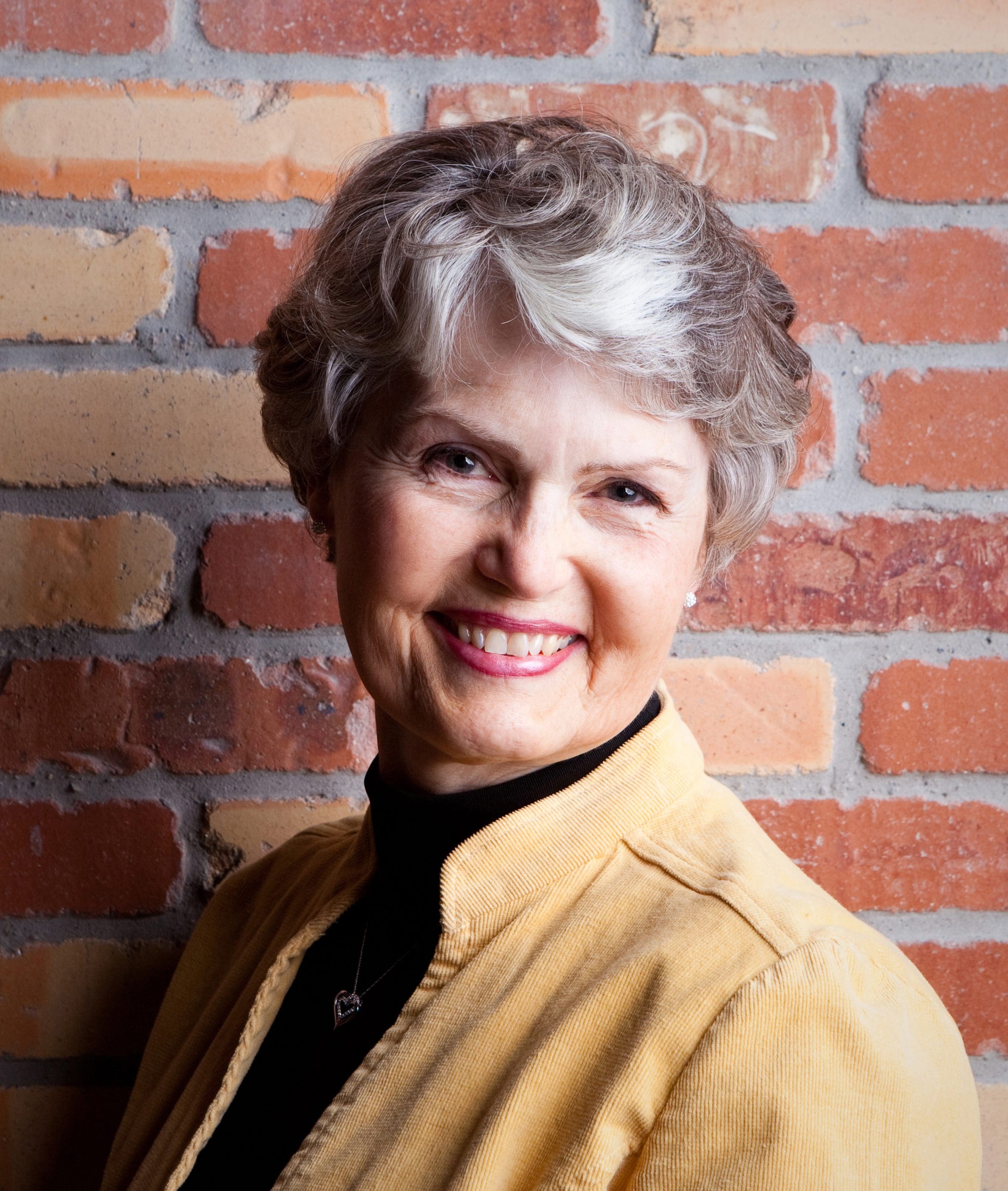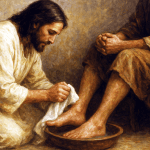As we age, it becomes more natural to look back on our lives and hope we have made a positive difference in our work, our neighborhoods and, most importantly, our families. The interesting part about a person’s legacy is that it can live on way beyond the years of mortality—the retelling of stories, the values exemplified, slogans or mottos consistently expressed, the lessons of love tenderly taught.
Whether the grandchildren live far away or under the same roof, grandparents have the opportunity through their legacy to make a long-lasting difference in the lives of their grandchildren and posterity. Here are seven essential channels grandfathers can follow to influence and strengthen family members young and old.
- Learn your grandchildren’s names
Properly identifying your grandchildren will increase their sense of value and belonging. Medical evidence proves that hearing one’s own name has unique, positive brain functioning. If you find yourself in a situation where it is not appropriate to call out a grandchild’s name or to visit out loud (like at a program or performance where only quiet is acceptable), look for an opportunity to extend a touch—brief hug, arm squeeze, pat on the back or, at the very least, significant eye contact—some form of personal recognition. This increases your grandchild’s self-esteem and enriches your relationship.
- Represent a principle
My father passed away in April of this year. It was interesting to hear the grandchildren’s expressions about my dad. Unanimously they went something like this, “He was a man of integrity” or “You could count on Grandpa to do what he said he would do.”
Values lived consistently carry with them not only a reputation but a video of life’s teaching moments, one episode building on another.
- Develop and repeat often your motto or slogan
A motto or slogan is a commonly repeated word or phrase—a brief statement used to express a principle, goal, or ideal. President Spencer W. Kimball not only often said his slogan—“Do It”—he had it imprinted on a plaque and placed on his desk for all to see. The power of a slogan is not that it is necessarily “catchy,” though that helps, but that it is memorable because the person using it lives it.
One of my readers, Barbara Harvey, told of a slogan her grandfather, Ozzie Thompson, often expressed. This piece of advice helped shape her life—“Concentrate on the happy days.”
Luanne Simmons’ father’s slogan was a hymn—“Count Your Blessings.” Every time his children and grandchildren hear that song they remember a faithful father and grandfather who taught them to love the Lord and to serve others. Luanne said, “He would sing it and play it one finger on the piano. Whenever things were not going well, Dad would sing it. He taught us to be grateful. My son and his wife sang ‘Count Your Blessings,’ as a tribute at Dad’s funeral. Whenever I hear the song, I think of Dad. It gives me hope and I remember to be grateful.”
- Define “work ethic”
There are two ways we can define “work ethic.” One is by example that results in reputation. Another is by expectation.
Here is an instance where an example provided that definition. David Klingler, my husband’s nephew, never personally knew his grandfather, Godfrey Klingler. “I was told stories about him,” David said. “From those stories, I could tell that my grandfather was a successful dry farmer during the depression, World War II, and until his death. Up until a few years prior to his death, my grandfather farmed approximately two thousand acres of land for his living. When his brother fell on hard times and needed a loan from the bank, my grandfather co-signed the loan and used eight hundred acres of his farm land as collateral. When the brother defaulted on the loan, my grandfather sold the land and paid the loan for him.” Those stories about Godfrey and his example of working hard, being charitable, and keeping his word motivated David to make similar choices in his own life.
Expectation can also define “work ethic.” When our grandchildren come to our home, they know they are expected to clean up the toys when they are finished playing. When I hire the older ones to do a job for me, like run the carpet cleaner to save my back, I explain what I want done and that I will pay them for a good job. They know then what I expect for that pay—job done well = full pay; incomplete or sloppy work = downgraded pay.
Even our attitude about work can impact our grandchildren. My friend Carolyn Allen told me her grandfather was a small businessman who loved to chat with his customers and be involved in their lives. Learning about his cheerful work attitude has made a difference for Carolyn in her own small business. She said, “He passed all that along to me. What I’ve come to love most about our tea business is the people that come our way.”
- Express love and appreciation for your spouse
Grandfathers, how you value womanhood and motherhood is taught not only with your actions toward your wife and daughters, but with every word you speak about them. You have incredible power to impact the lives of your children and grandchildren by showing (in word and deed) that marriage and family are revered priorities.
My cousin Judy Huffaker said her husband promotes the value of strong character in womanhood (manhood) by asking the grandchildren, “What is the most important thing you can be when you grow up?” After they think and give their answers, he tells them, “The most important thing you can be is to grow up and be a good woman (man).”
- Share your testimony
Of course there are a lot of ways you can share your testimony—say it, live it, write it, have your posterity tell about it, etc.
My sister Diana and I interviewed my father a few years ago to write his history and his testimony. As I already mentioned, he passed away in April, age 96. I was asked to give the life sketch at Dad’s funeral, and because I had written his history all I had to do was shorten the length. Afterwards I had a number of individuals ask for a copy of my talk because of the family history involved, but more importantly, because of Dad’s testimony that was included.
Dad was a veteran of WWII. He flew 50 missions as a bomber pilot. This is one of my favorite testimony pieces from my dad’s history. It is in first person because it was taken from his personal interview.
Two different bombardiers came to me at different times and said, “Don’t you ever get frightened?”
I said, “Of course I do, just like anybody else.”
They said, “We watch your face and your expression doesn’t change one bit.”
Although I got frightened, I really had no fear. I got it from Spencer Kimball. He traveled by air a lot. I asked him one time, “Don’t you worry about your safety?”
He looked up at me in a surprised expression and said, “No. I don’t worry. The Lord won’t take me until my mission is complete.”
Right on my first bombing mission of the war I decided that if the Lord wanted to see me through this, I would make it. So I left it up to Him and had no fear.
- Show tenderness and compassion, and have fun
Every one of us, young and old, need to feel secure in someone’s love. We do best when we believe how we feel matters to someone else. As grandparents, we have many opportunities to express empathy when a grandchild is fearful and joy when he or she is excited and happy. A hug, a smile, or just one word of encouragement can build up a grandchild’s resolution to move forward with a good idea. Simple positive statements, like “Smart girl” or “You ask good questions,” are logged into a child’s mental catalog of self-worth.
Don’t be afraid, when the opportunity arises, to be silly and just have fun with your grandchildren. My friend Vicki McNeil’s memory of her grandfather is filled with laughter. She said, “My mother’s father was such a hoot. I remember that he would play with us like a kid. My first pair of roller skates (with a key) was first tested and tried by Grandpa, showing me just how it should be done.
And when fall came and the leaves had to be raked, of course he would rake a big pile directly in front of the swing set, and that was so he could demonstrate the fine art of leaping out of a flying swing into the pile of leaves. After all that playing, Grandpa needed a little snooze. He snored like a freight train. I loved watching him. When something startled him, he would snort, snort, and look around to see who was watching. It would give us such a case of giggles! I sure loved my Grandpa!”
Here’s an idea. I’ve placed a “Kindness Box” on my website for your use (https://www.fayklingler.com/archives/1687). Choose a grandchild who needs a little lift. Print the box on cardstock. Cut and glue it together. Put a special note of praise and appreciation inside and secure the lid. Give it to your grandchild and see how he or she lights up. You will have just made a positive difference in a child’s life. Amazing how such a small thing will be remembered far into adulthood!
May God bless you, grandfathers!
Fay A. Klingler is the author of the best-selling book The LDS Grandparents’ Idea Book, I Am Strong! I Am Smart!, and many other books and articles (www.fayklingler.com). She can be contacted on her Facebook page, https://www.facebook.com/FayKlingler.



















Fay KlinglerJuly 7, 2015
Thank you, Dianna. I'd love to hear what you learned from your grandchildren on your trip. That Snake River rafting near Jackson is one of my favorite trips! [email protected]
Dianna CurrieJune 19, 2015
We are leaving for our annual camping trip Monday, the day after Father's Day so we will be celebrating Father's Day Monday. I have made a list from your article to see what the grandchildren have observed form each item you listed, it ought to be fun. Thanks for being a part of our annual rafting trip 2015. We have gone each year, same place (Snake River near Jackson and have rafted (in our own raft) for 35 years. Love Father's Day!!!